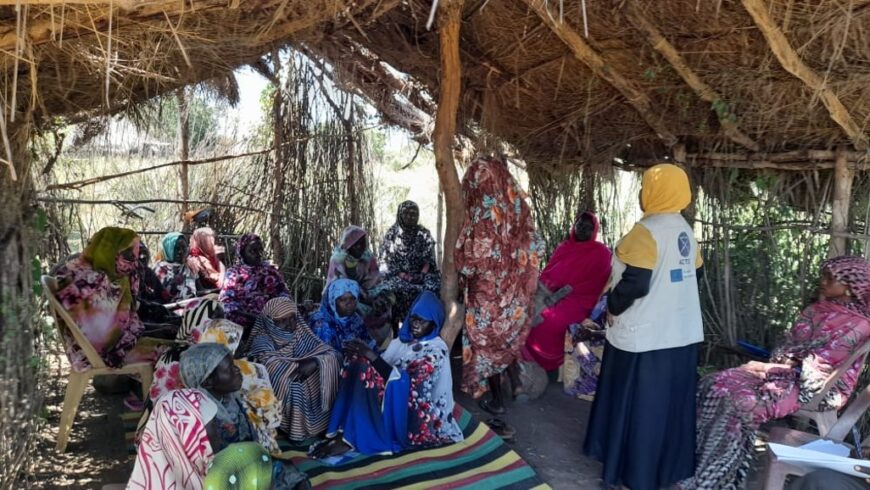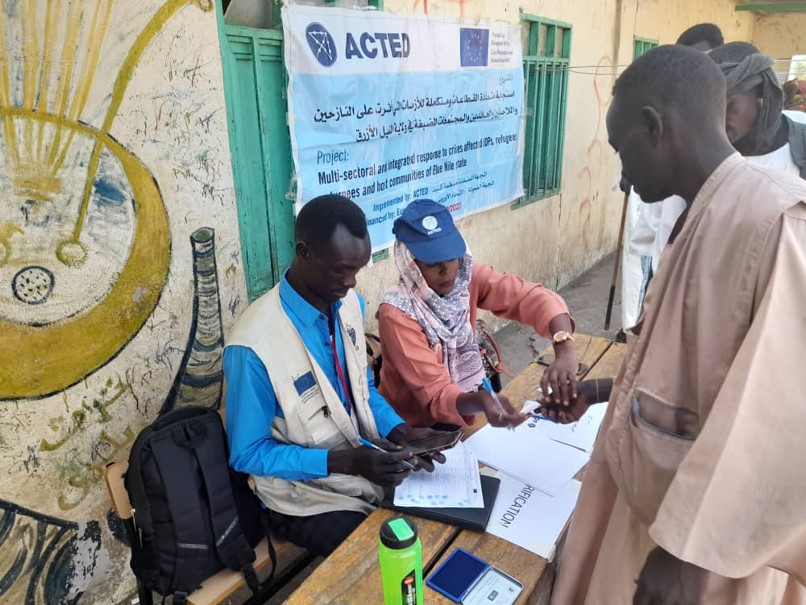Addressing the needs of affected IDPs, refugees, returnees, and host communities in Sudan
The humanitarian situation in Sudan continues to deteriorate one year after the military coup that overthrew the democratic transition. The resulting economic crisis and soaring inflation are having a significant impact on household purchasing power and public service delivery. In addition, recurrent climate shocks and the resulting scarcity of resources have triggered local conflicts and population displacement.
In Blue Nile State, in southern Sudan, inter-communal clashes occurred in July and October 2022, resulting in numerous deaths and injuries.
This has worsened the security situation in the State, making it difficult to deliver humanitarian assistance while Blue Nile people’s needs were significant. According to UNHCR, thousands of people have been internally displaced, bringing the number of Internally Displaced Persons (IDPs) in Blue Nile State to more than 150,000.
In this context where needs are important and multi-sectoral, ACTED and its partner International Medical Corps (IMC), with the European Union‘s support, are providing basic emergency services and preventing mortality and morbidity to address the basic needs of IDPs, returnees and host communities in the Baw, Geissan and Kurmuk regions of Blue Nile State.
While IMC covers health and nutrition sectors, ACTED has focused on food security and access to livelihoods by providing cash assistance. ACTED also provides water, sanitation, and hygiene activities, as well as sensitization and distribution of kits related to hygiene.
Providing basic needs for the affected communities of Blue Nile State
According to the Sudan Humanitarian Needs Overview Report 2023, Blue Nile is one of the State with the highest rate of food insecurity. Baw, a district of Blue Nile State, is one of the areas with the highest percentage of people in need: 55% of the population is severely food insecure. Half of the population of Kurmuk town is also food insecure. In Geissan, between 40 and 45% of the population is in the same situation. Added to this are many issues related to water, sanitation, and hygiene, such as water-borne diseases.
In order to mitigate the contamination of many water points, responsible for diseases to which children are particularly prone, ACTED has rehabilitated clean drinking water resources, public latrines and hand washing points. To complete this action, ACTED has also provided hygiene and menstrual management sensitizations, during which hygiene kits (soaps, toothbrush, laundry detergent…) and dignity kits, which contain what is needed during menstruation (disposable menstrual products, reusable menstrual products and female underwear) were distributed.

Fatima* and her family of five are returnees from Geissan. Affected by the war, they have been displaced many times and have finally returned to the region. Rising inflation prevents them from getting adequate food supplies. Fatima received cash assistance and dignity and hygiene kits.
Before, we could not feed ourselves properly. We never received any help. ACTED's cash assistance has allowed us to buy food. Although the situation has changed a bit, the needs in the region are still very great.
Rachid is 27 years old and lives in Geissan. With his wife and their two children, they benefited from the cash distribution provided by ACTED.

With the money we had I was able to buy sorghum. We hope that the situation will improve and become more stable so that my family and I can live more peacefully
ACTED’s multi-sectoral approach has provided these areas with improved access to health, water, sanitation and hygiene, while contributing to the fight against food insecurity in the region.
